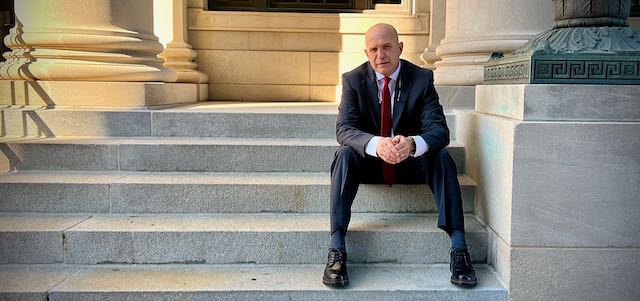Oklahoma Criminal Law

Kevin Adams - Criminal Defense Lawyer
Call 918 582-1313 for a free consultation
Oklahoma Preliminary Hearing Process
Defendants charged with felonies (by information) have an Oklahoma Constitutional Right to a Preliminary Hearing. At the Preliminary Hearing the State of Oklahoma will be required to introduce evidence to establish probable cause that a crime was committed and probable cause that that the defendant committed the crime. Learn about the importance probable cause plays in the criminal justice system.
The Preliminary Hearing is an evidentiary hearing and the defendant has a right to be present, cross-examine witnesses and to be represented by counsel. A defendant charged with a crime has an Oklahoma and United States Constitutional Right not to incriminate themselves, as a result the defendant cannot be forced to testify at the preliminary hearing. The judge presiding over the preliminary hearing has the right stop the preliminary hearing once the showing of probable cause has been made. This is known as the "cut off provision". Prior to the Preliminary Hearing it is the policy of most district attorney's Office to make copies of the police reports available to the defense attorney. If the district attorney's office does not make copies of the police reports available at least 5 days prior to the preliminary hearing than the judge hearing the preliminary hearing cannot invoke the cut off provision. (See Statutue 22 O.S. Section 258)
After the conclusion of the evidence the state will rest and the defense attorney will either demur to the evidence or attempt to call defense witnesses. The defense is not necessarily entitled to call defense witnesses at the preliminary hearing. The defense may also make motions such as motions to suppress during the preliminary hearing. If the judge presiding over the preliminary hearing determines that the state has met its burden than the judge will issue an order binding the defendant over for trial and order the defendant to appear for District Court Arraignment in front of their assigned district court judge.
The official purpose of a preliminary hearing is to determine if probable cause has been established. It is unusual for a case not to be bound over for trial. Probable cause is a low level of proof and the evidence is viewed in the light most favorable to the state. A defendant could literally have more evidence that he or she did not commit the crime than the state has that they did commit the crime and still be properly bound over. If the judge determines that the state has failed to establish probable cause that a crime has been committed or that the defendant has committed a crime than the judge will grant a demurrer and order the charge dismissed. If the state disagrees with the judge's decision the state can appeal the judge's decision. If the defendant and his or her attorney disagrees with the judge's decision they can file a "Motion to Quash" at the district court level.
If the state and the defendant agrees the defendant can waive his or herbPreliminary Hearing. nSometimes the waiver of a defendant's preliminary hearing is a legitimate strategy. However, if a defendant intends to take his or her case to trial then waiver of a preliminary hearing usually is not a good idea. Another purpose for the preliminary hearing is for the defense lawyer to elicit testimony from the state's witnesses that commits the state's witnesses to a story. It is because of this other purpose that it is usually a bad idea for a defendant to waive his or her preliminary hearing if they intend to go to trial. The preliminary hearing is a critical stage in Oklahoma's felony process and a defendant needs a competent criminal attorney to represent him or her at this hearing, especially if the defendant intends to proceed to trial,
Send your questions to LawyerAdams@me.com
I try to respond to all inquires as quickly as possible. If you need immediate assistance you can call my office (918) 582-1313 or my cell phone (918) 230-9513. If you are in need of emergency assistance feel free to call my cell phone anytime either day or night.